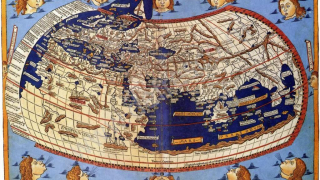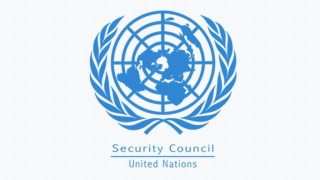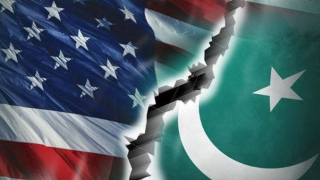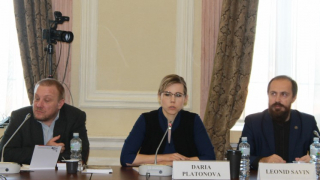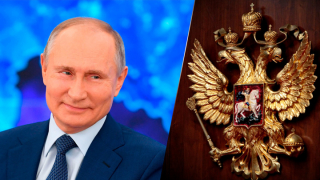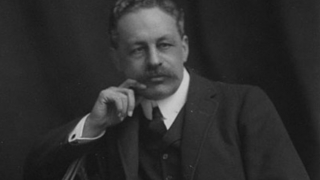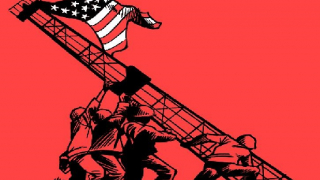Foreign Policy Dimensions of Pakistan
27.10.2019
In the wake of 9/11, Pakistan lost its stature in the international comity of nation. The unfortunate scenarios at global and regional apparatus worsened the situation for Pakistan’s foreign policy. The three fundamental forces behind Pakistan’s stagnant growth includes; weak political system, economic instability, absence of good governance. For decades the state has been in pursuit of sincere leadership which could provide a roadmap for the greater good at home and abroad. Now that the Pakistan has evolving democratic system enriched with democratic values, Pakistan has got the opportunity to uplift its civil society, ensure vibrant media and positively shape public opinion regarding the political system.
Since Prime Minister Imran Khan has taken charge of the helm of affairs, Pakistan’s standing at international level has improved and moving in the right direction vis-à-vis domestic policies. Moreover, Imran Khan has set a proactive foreign policy at every level to revive the catastrophic economic condition of the country which has been plagued for many years now. The ongoing regional security issues has provided Pakistan an opportunity to play a significant role at international level considering America’s Afghanistan exit, increased Saudi-Iran tensions, Kashmir issue and Islamophobia. With the changing evolving geo-strategic environment, Pakistan is once again successfully grabbed the attention of global powers. Pakistan’s global role is compelling international players to engage the country to resolve various international and regional issues like Iran and Afghan crisis. Furthermore, Pakistan’s voice on climate change, afforestation, water sharing and tourism can enhance the soft image of the country at international level.
In South Asia, Pakistan has enjoyed significant power in the previous decades. It has been enjoying good rapport with China, Saudi Arabia and Turkey. However, in a highly competitive and globalized world, Pakistan needs to find more allied at international level. The China’s Belt and Road Initiative is going to add upward shift in Pakistan’s economy if Pakistan is able to correct its macroeconomic policies. Moreover, India enjoys a vibrant economy which has enhanced its standing at international level as compared to Pakistan. However, Pakistan has cashed the recent developments like Kulbhushan Yadav’s espionage circle, Indian Air Force aggression and misadventure in Kashmir diplomatically and thwarted the Indian intentions to isolate Pakistan.
Likewise, Prime Minister Imran Khan’s speech at UNGA portrayed a soft image of Pakistan to promote peace and stability in the region. Pakistan has presented itself to the International Community to resolve all differences through negotiation or mediation at any level. Unfortunately, Indian aggressive regional design and global hegemonic ambitions have added fuel to fire. Rather working as facilitator, US administration is chanting ‘Howdy Modi’ to appease the saffron revolutionaries. Pakistan’s efforts for post war adjustments in Afghanistan are being tarnished by lack of American efforts to provide India a leverage in regional security issues which will further disturb the balance of power equation in South Asia. PM Imran Khan meeting with President Donald Trump has cautioned the strategic decision makers in the US to revisit the American narrative.
The quest for global peace and harmony are entailed in the visionary leadership of PM Imran Khan. Moreover, the trends and transformation of Middle Eastern politics have devastating impacts. The Saudi-Iran dilemma has established paradoxical situation for decades. PM Imran Khan has taken initiative to diffuse the tensions. This effort has given signals to western and eastern capitals. Though there is unlikely capability when it comes to Pakistan but being vocal for Islamophobia and chants of Brotherhood among Muslim Ummah might have some impacts. Likewise, the emerging triple alliance between Pakistan, Turkey, and Malaysia among OIC member states is the direct consequence of Western bigotry and Indian aggressiveness. Luckily, Pakistan finds itself in the epicenter of changing global alliances.
If we take into account the above mentioned perspective, Pakistan’s foreign policy is incomplete without having cordial and friendly relations with Muslim countries and China. Moreover, without peaceful settlement of Kashmir the South Asia is going to suffer from territorial and political instability. It is time for Pakistan to switch to neoliberal economics to increase the economic opportunities which will provide a thrust at diplomatic level. This is also the right time for international community especially USA to stop blaming Pakistan for their self-created problems in the region. The world has to acknowledge Pakistani efforts for bringing peace in the region. As Pakistan is playing leading role under the visionary leadership of PM Imran Khan, international community must support the country to rebuild the economy. West has to change their typical biased attitude towards Pakistan, by acknowledging Islamabad’s sincere leading role.



